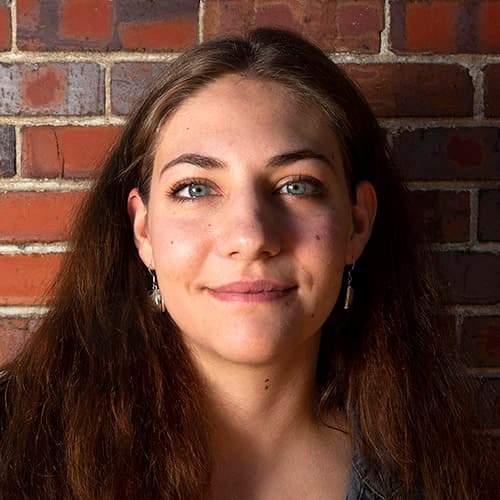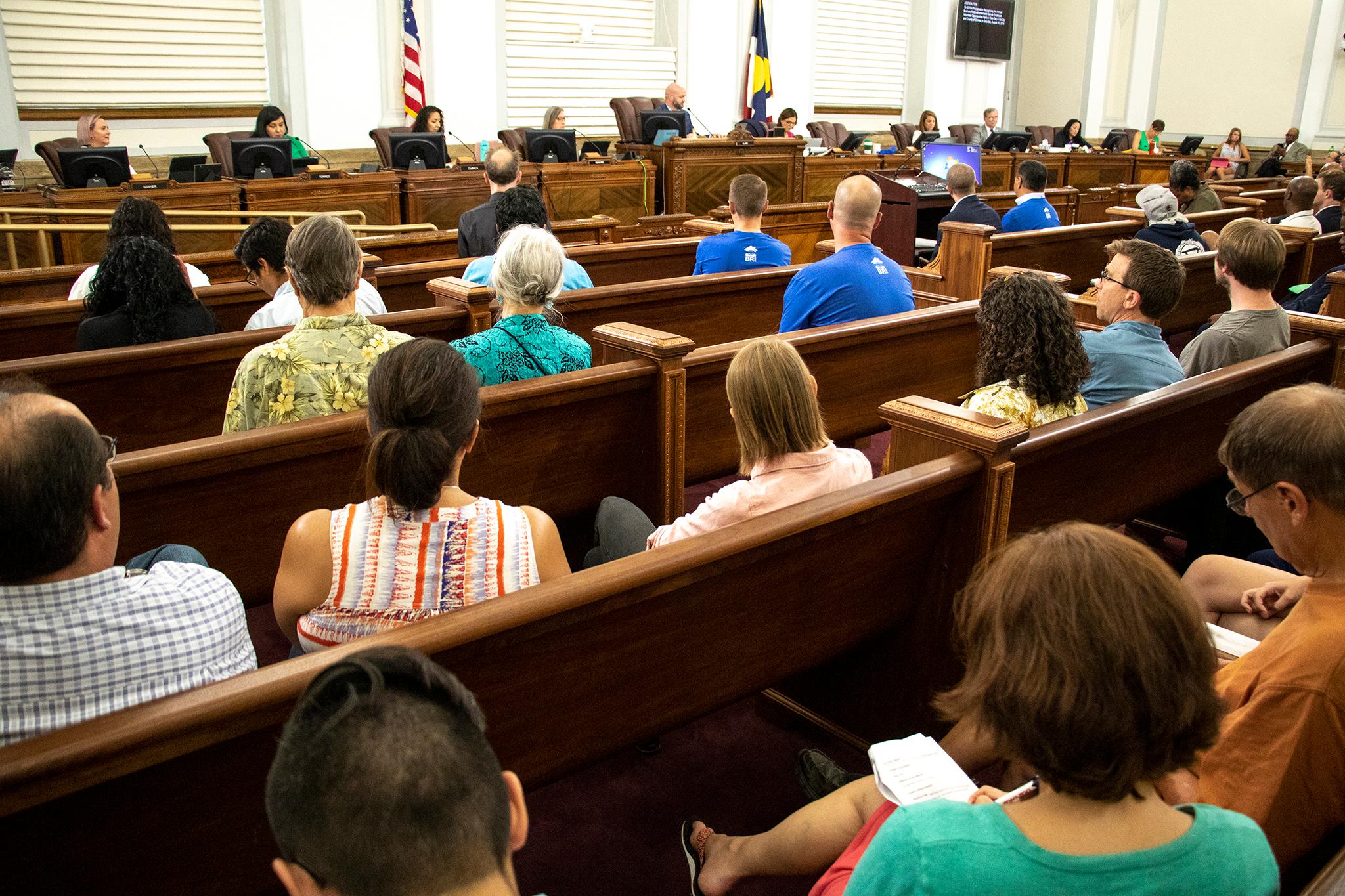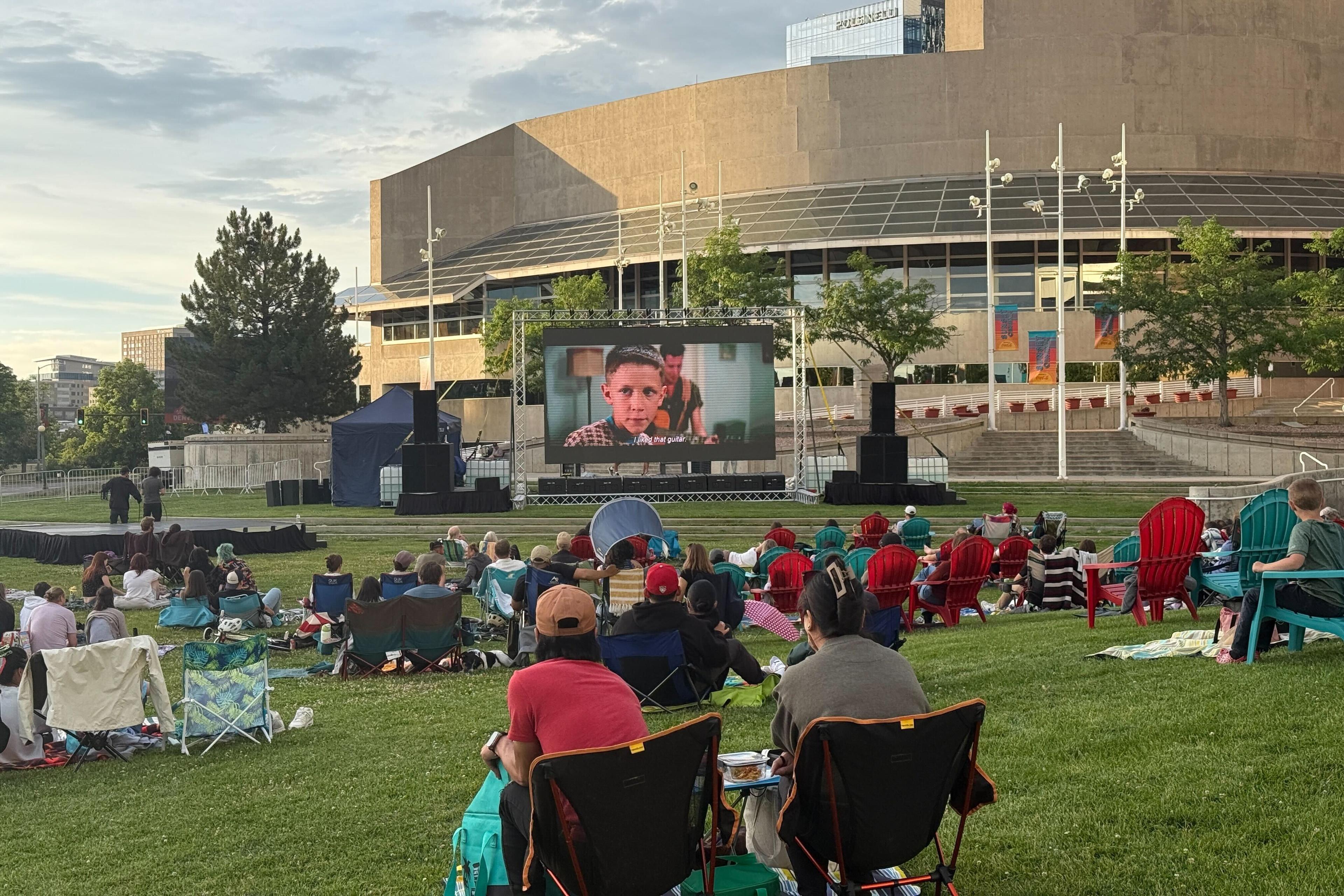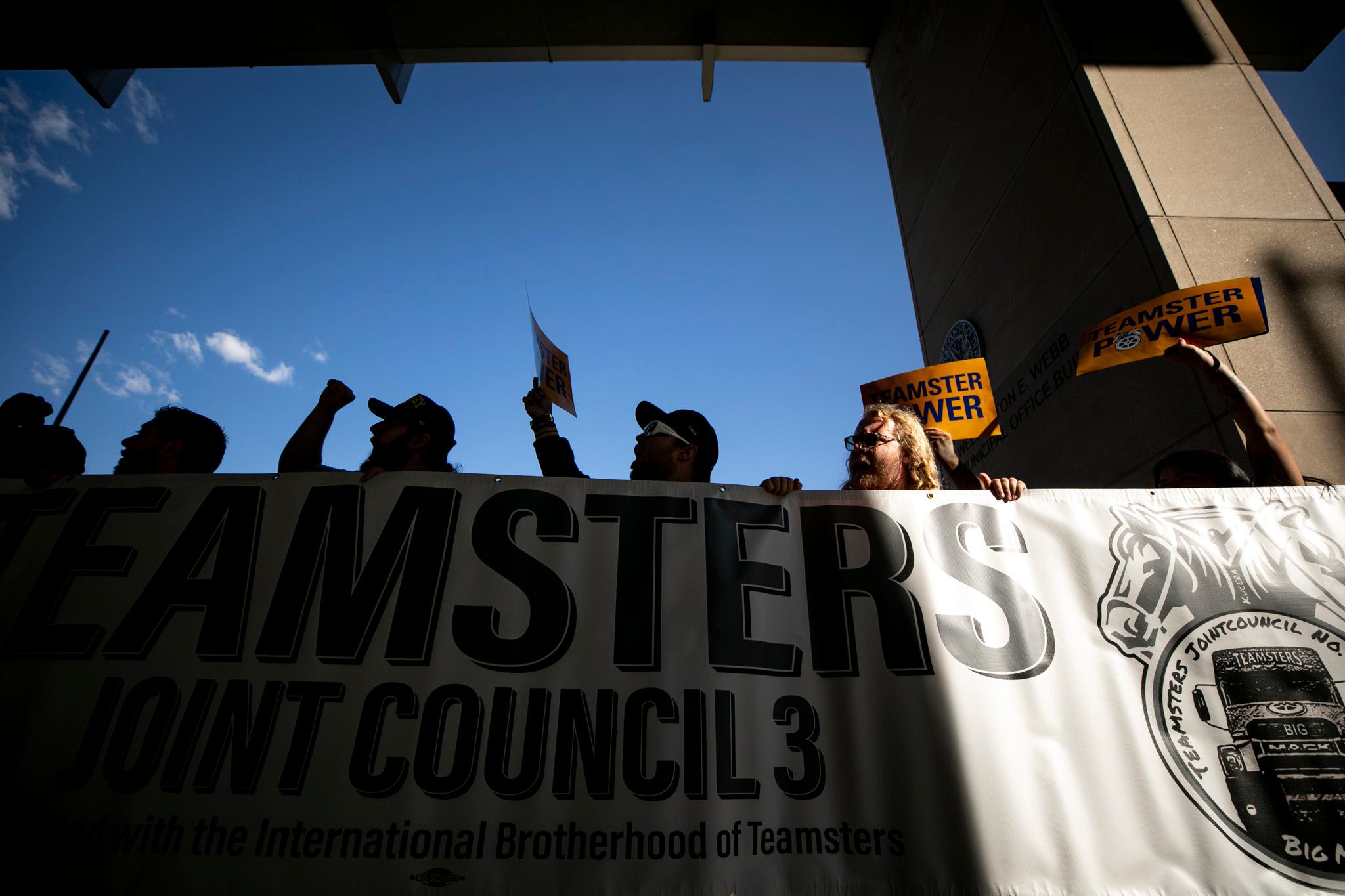Denver City Council returned to in-person sessions around two weeks ago. Most people probably didn't think much about the change, or about the many meetings streamed on the web before the return to council-in-person.
But some civically-active citizens have spent hundreds of hours at official city meetings giving 2- or 3-minute elevator pitches, sometimes the same one month after month, during public comment sessions. The new hybrid model has allowed these commenters more flexibility.
"One of the problems of 'How long do I have to sit in the chambers and wait to speak?' is a little bit solved," Councilmember Robin Kniech said at an operations meeting. "I can be at home waiting to speak... versus having to lose an entire day of work."
This has allowed a younger, more diverse demographic to tune in, according to a city council spokesperson. And most of them like the virtual setting: a survey of over 300 Denverites done by Councilmember Amanda Sawyer's office found that over 90 percent of respondents wanted City Council to continue offering remote options.
Nearly half didn't want City Council meetings to come back in-person at all.
According to a city spokesperson, the most frequent regulars at public-comment sessions for Denver City Council are married couple David Hagan and Tess Dougherty. They have signed up -- although they didn't always speak -- for every single City Council public comment session since October of last year.
Dougherty, a 31-year-old teacher, never went to City Council meetings before the pandemic.
"I was a special-ed teacher, so my participation in local government didn't extend much further than the school walls," she said, adding that her hours made in-person attendance at council meetings difficult. "If a meeting's at 10 a.m. during the weekday, there's not a teacher in the city who could attend."
She and Hagan jumped into activism during the pandemic through the summer's protests against police violence. The two originally connected at a protest against Betsy DeVos, the Trump-appointed former secretary of education. But this level of civic engagement is new to them.
In Denver, they began working with the group From Allies to Abolitionists and its Justice for Raverro campaign. It culminated in a theater production for Denver artist Raverro Stinnett who was severely beaten by guards at Union Station in 2018. Dougherty later witnessed Denver City Council spike their contract with the security firm whose guards were responsible for the beating.
She said that was the moment she knew activism was for her.
Dougherty and Hagan now go to meetings for a slew of acronym-laden city departments: CPD, HOST, DOTI, AQCC, COOGC, town halls about the expansion of I-70, plus meetings for the Office of the Independent Monitor (as well as the oversight board in charge of that board).
The couple have focused their activism on fighting the city's homeless encampment sweeps and abolishing police. Hagan said Zoom has "opened up access" to city meetings.
"Even if I was at work and I need and I wanted to participate in the meeting, I could stay in my office and participate," she said. "What the pandemic revealed was that virtual options and virtual participation was very attractive and very helpful to so many people."
Activist and frequent-public-commenter Jesse Parris agreed. He doesn't plan on attending in-person now that City Council is back, instead opting to take part via Zoom because it's more convenient.
But Chairman Seku, a former mayoral candidate and longtime activist, feels differently. He said Zoom is "nothing like being in the chambers."
"There's a lot of history on those benches. There's a lot of conversations in that room. Doing it electronically, on the phone, it doesn't feel the same," he said. "It's very alienating. You can't really feel the responses of the folks that are elected."
He said he's no longer a political junkie. "I mean, I've been in recovery," he explained, laughing. "I ain't been showing up. I got a life now. I got my sense of humor back."












